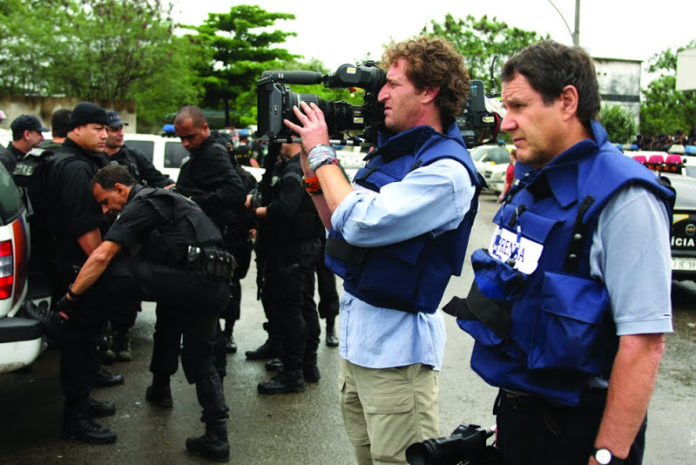 |
“I thought there was nothing more to say about Anne Frank, because she was so famous. But I was wrong — no one had really told the story of the girl, only the diary.”
These words, spoken by famed director Jon Blair in an exclusive interview with the Cape Jewish Chronicle, describe why he decided to create the documentary Anne Frank Remembered, which was recently shown at the Encounters film festival in Cape Town. “To be her definitive film biographer motivated me, and was an irresistible opportunity,” he says. The result is a powerful and poignant documentary capturing the life of this iconic young girl — extending beyond her famous diary but also including it. “I hope I have helped to bridge the gaps in her life, and that this documentary will stand the test of time,” says Jon.
Of the film, Jon says that it was his intention “to bring the girl to life. Everyone in the documentary knew Anne Frank. There are no historians to tell you what to think — I just captured the story of Hitler’s most famous victim, told by those who knew her. It is a three-dimensional view, where the story starts with her birth in Germany and ends with her death in Germany”. Regarding stories of the Shoah, Jon also made the documentary Schindler, which was later used by Steven Spielberg as a research source for his film Schindler’s List. Jon has been drawn to telling these stories of the past because “I am interested in stories about the world. My job is not to teach, but to reach people. If at the end of the film, people have learnt something about the world, then it is a real bonus; if I have changed the world a bit, it is even better. Films must tell good stories, shed insight and light onto the world, and make people think hard.”
Stories from South Africa
Jon was born and raised in South Africa and left when he was drafted into the South African army during the apartheid years. He has since lived in the UK and United States. He returned to South Africa illegally in 1976 to make the first film for international television about the Soweto uprisings, ironically entitled There is no Crisis.
In 2007 he made the documentary Murder Most Foul about the murders of Brett Goldin and Richard Bloom. “Making it was traumatic — to see that level of grief,” says Jon. “My heart goes out to the families of victims, and to the families of all crime and trauma victims. The perpetrators were doing something deeply horrible, and I wanted to try to understand why. It’s not good enough to say it was simply evil. The deed was evil, but these people were not necessarily sociopaths. A lot of people are doing absolutely horrible things, and the documentary raised questions about how that came to be.” As an ex-South African who has made these two very different documentaries about South Africa, Jon has mixed feelings about his home country. “At first, when I went into exile I just wanted to get on with my new life and forget about the past. But it has become more complex for me — in the post-1994 euphoria I was proud of the transition.” However, he provides a metaphor describing how he feels about South Africa today: “It’s like going to the doctor who says ‘don’t worry, you’ll be fine, but meanwhile knows you have a serious illness. South Africa prefers this kind of doctor, but silence is not a friend of South Africa. I see myself as a friend; and have no problem pointing out the depth of problems in the country,” he says.
Telling our stories
Jon also made the documentary Ochberg Orphans in 2007. The film is about Isaac Ochberg, who saved 200 orphans from poverty and pogroms in Russia in 1921 and brought them to South Africa. It is both a Jewish and a South African story, making it particularly relevant to the South African Jewish community. Jon was interested in telling the tale because “We were brought up without much specific information about pogroms in Europe; but through the Ochberg story, we can understand the details and circumstances of how Jews lived at the time, including the pogroms. Within that, we can see the roots of the Holocaust.”
For the documentary, Jon interviewed people who were actually there and remember the pogroms, with an average age of nearly 100 years old. “The stories made my blood churn. This wasn’t just the stories of the orphans, but also of a specific era in Eastern Europe. First- hand oral history brings this to life, and history is a way of understanding the world today. If we don’t learn from it, we are doomed to repeat it. If I both entertain and inform, then I am doing something useful”, he says. In terms of advice to young filmmakers who want to succeed in the industry, John says that Jon Blair on set “In one sense it is easier — technology is very low cost and accessible. Be a storyteller. No one has to watch your film, so make it attractive. Don’t ‘dumb down’ or compromise your story. Ask informed questions and make sure your answers both entertain and inform!











